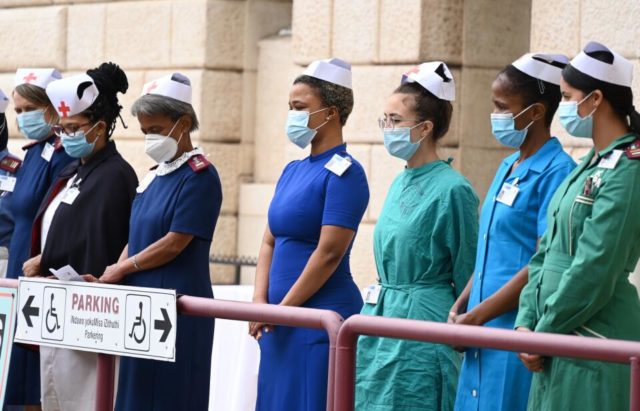According to the South African Nursing Council, the nurse-to-patient ratio stands at one nurse for every 218 patients. Although it was observed in 2010 that South Africa had a shortage of more than 44,700 professionals, nursing was only added to the critical skills list late in 2022.
IF YOU have been to a public clinic or hospital lately, you will have likely noticed how few nurses there are attending to a large number of people.
According to a World Health Organisation report, every country should be training more nurses than they do each year. This is to avoid a global shortfall of nurses.
According to the South African Nursing Council, currently, the nurse-to-patient ratio stands at one nurse for every 218 patients. Although it was observed in 2010 that South Africa has a shortage of more than 44,700 professionals, nursing was only added to the critical skills list late in 2022.
The supply of qualified personnel in all nursing categories has decreased by almost 40% since 2013. Director at Allmed Healthcare Professionals, Sandra Sampson, believes many factors have contributed to this growing deficit.
They include inadequate training and student outputs, positions not being filled, an ageing workforce, lucrative overseas opportunities, and poor working conditions that have only worsened due to the Covid-19 outbreak.
“The ideal ratio is 1:6, starkly highlighting the depth of the crisis. Addressing this shortage requires a co-ordinated approach from government, civil society, and the private sector if we’re to avoid a total collapse of the healthc-are sector, with Temporary Employment Service providers leading the way.”
Sampson believes solving South Africa’s nursing shortage is possible by partnering with Temporary Employment Service (TES) providers.
“Looking at the example of developed economies, TES providers can also assist in sourcing foreign skilled labour to bolster the medical sector until training and student outputs recover. While foreign skills should only be brought in as a last resort in other sectors, it’s important to bear in mind that patient care is the top priority here, which trumps all other considerations,” she said.
Sampson added that enabling operational efficiency will also alleviate existing conditions under which permanently employed nursing professionals are overworked, giving them a much-needed opportunity to take leave and prioritise their health and mental well-being.
Life Healthcare Education executive Sharon Vasuthevan said South Africa has had a shortage of nurses for a long time, long before the Covid-19 pandemic.
“Our recent study done between the national Department of Health and the Hospital Association of South Africa reveals that we have a current shortage of anything between 26,000 and 62,000 nurses, which are predominantly registered nurses,” said Vasuthevan.
Despite projections of a huge future shortage of nurses, South Africa is training too few nurses and then fails to employ many of those who have qualified. Matshidiso Borifi, who’s been practising as a registered nurse in a public hospital for five years, said nurses are overworked and underpaid.
“We are faced with overworked and underpaid nurses who are so unmotivated that a lot of them are delivering poor service. A very large percentage of registered nurses are reaching retirement age and are not being replaced. Most of my colleagues have left – they have either joined private hospitals or have gone to work abroad in countries like England. It’s very tough for us,” said Borifi.
Brenda Seloane, a registered nurse, echoed the sentiments. She said training is not always a quick fix as it takes a while for specialist nurses to be produced.
“We can’t bring in foreign nurses because there aren’t enough of them and other countries offer better salaries and conditions of service which is why so many of our young nurses are leaving SA to work elsewhere. It’s too late! Even if training is fast-tracked, it takes 5-10 years to produce specialist nurses like midwives, ICU staff and psychiatric nurses. The government system needs to be changed from the top,” said Seloane.
She added that: “Without massive incentives, like a huge increase in salaries, no one is prepared to take on the largely thankless task of working long, unsocial hours, caring for often rude, obnoxious and sometimes violent patients, while dealing with difficult, uncaring family members who don’t understand the realities of the medical professions.”








